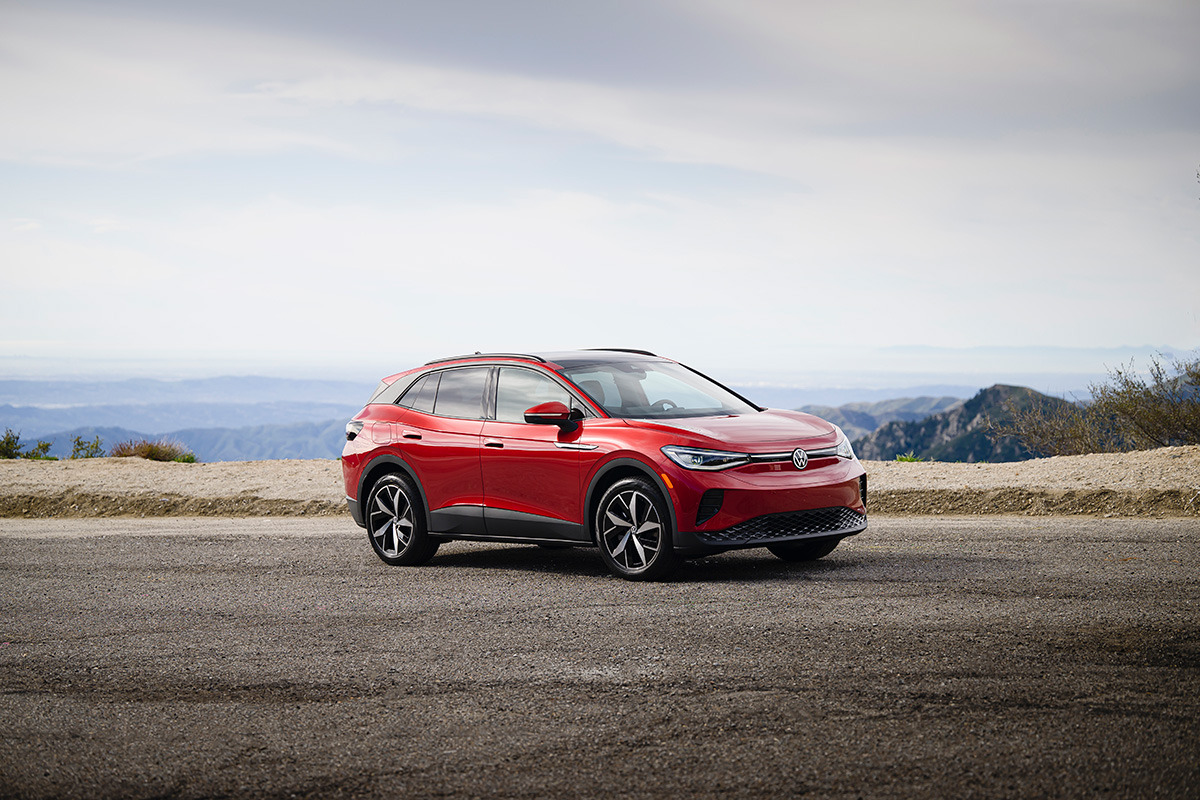Living
Queery: Heather Mizeur
20 gay questions with the Maryland state delegate

Heather Mizeur appears poised for re-election to the Maryland House of Delegates representing the 20th District (Montgomery County) after Tuesday’s primary.
Mizeur, who ran on a platform of broader health care availability, renewable energy production and equal rights for gays, says being openly lesbian has been a political advantage.
“The district overall is overwhelmingly progressive, one of the most progressive in the state,” she says. “That doesn’t mean there aren’t pockets of conservatives, but by and large, it’s really been an asset more than anything else. When I was running in 2006 there were seven of us running for three seats. Two were incumbents, five were challengers. When I was knocking on doors, I heard some people say, ‘You’re all the same on so many of the issues, I’m having a hard time distinguishing.’ Being able to say, ‘Well, I’m a lesbian,’ helped me stand out.”
Mizeur, a 37-year-old Takoma Park resident, grew up in Blue Mound, Ill., and came to Washington in 1994 where she worked in the offices of several Democratic members of Congress. She was Sen. John Kerry’s director of domestic policy from 2003 to 2006. A former Takoma Park City Council member, Mizeur has been in the General Assembly since 2007.
She gained national exposure when she was named a pivotal superdelegate at the 2008 Democratic National Convention in Denver, an episode she remembers with mixed feelings.
“I actually could have done without a lot of the elements of that process,” she says. “I felt there was too much emphasis on the candidates trying to court and recruit from the delegate count rather than running the primary system. … I didn’t think it was my place to pick a side or step in until all the voters had their say.” (She eventually endorsed Obama.)
Mizeur enjoys golf, wine, food, travel and quality time with family and friends in her down time. She and her spouse, Deborah Mizeur, were married in 2005 on the Chesapeake Bay and had a legal ceremony in Napa Valley, Calif., in 2008. They share their home with their dog, Chester.
How long have you been out and who was the hardest person to tell?
I came out in college, in 1993. I was most scared to tell my parents because I feared it would be the first time in my life I was going to disappoint them. We are a very close family and I was always the over-achiever, rule-following child that wanted my parents to be proud of me. I was terrified that this was going to be a wedge in our family. Thankfully, our family bond was stronger than that and after an initial bumpy few weeks, we returned to our regular interactions and my parents could not be more supportive.
Who’s your gay hero?
I don’t often think of people with labels attached, but if pressed, I would have to say Rachel Maddow. She’s done so much to promote issues of importance to our community with a savvy intelligence that resonates with audiences writ large.
What’s Washington’s best nightspot, past or present?
Ha. Well, the question presumes that I have an active nightlife. My preference is to drink really good wine with friends in the comfort of our home. When I choose to go out, though, I like MOVA quite a bit.
Describe your dream gay wedding.
We had our dream gay wedding in 2005, on the western shore of the Chesapeake Bay. Because Maryland hadn’t (and still hasn’t) stepped up to the plate on marriage equality, we borrowed from a Quaker tradition and had everyone in attendance sign an artist’s rendering of our wedding vows. This beautiful marriage license is framed and hanging in our living room. Some day soon we’ll make Maryland respect that and start granting licenses here in the Free State.
What non-gay issue are you most passionate about?
I’ve spent my entire professional career fighting to make sure that everyone in this country has access to affordable, high-quality health care. I’m most proud of laws I sponsored to cover an additional 170,000 Marylanders with health coverage. I’m eager to help Maryland implement federal health reform options in the most meaningful, innovative way possible.
What historical outcome would you change?
The assassinations of JFK, RFK and MLK
What’s been the most memorable pop culture moment of your lifetime?
As a kid, it would have to be Michael Jackson’s “Thriller” video release and craziness over his album. As an adult, I would say Melissa Etheridge playing the Grammys post-chemo and nailing her parts of the Janis Joplin song with Joss Stone. What an inspiration on how to find your strength to overcome adversity. It still gives me goose bumps.
On what do you insist?
That the toilet paper roll from the top of the roll.
What was your last Facebook post or Tweet?
Musings about missing a mentor who died of breast cancer in 1998. Penny was a state legislator in Illinois. Her niece recently contacted me to tell me she has been following my work in Maryland and that her aunt would have been proud. Caught me off guard. Made me cry. Felt like sharing the story with my friends – especially the ones from Illinois that also knew and admired her.
If your life were a book, what would the title be?
“Just a Small Town Girl”
If science discovered a way to change sexual orientation, what would you do?
Wake up, check my email, walk the dog, read the newspaper, eat breakfast, work, have lunch, go to a meeting, work, walk the dog, eat dinner, work, watch Rachel Maddow, kiss my wife goodnight, sleep. Repeat.
What do you believe in beyond the physical world?
By and large, traditional Catholic teachings. But in James’ Epistle, he says, “Faith without works is dead.” I believe we have to work in the here and now to create our heaven, our peace, our community and our relationship with our Creator.
What’s your advice for LGBT movement leaders?
Our community is as diverse as America and it will take all of us to win. So everyone take a deep breath, remember what we’re fighting for and work together.
What would you walk across hot coals for?
My wife.
What gay stereotype annoys you most?
How can you choose? They’re all so reductive.
What’s your favorite gay movie?
“Boys Don’t Cry” and “The Incredibly True Adventures of Two Girls In Love.”
What’s the most overrated social custom?
Registering for wedding gifts when you’re both already two adults that own everything.
What trophy or prize do you most covet?
Being selected a national Truman Scholar in 1994.
What do you wish you’d known at 18?
I was aware at an early age that the world is much bigger than any of us, and that learning never stops. But if I had the chance to tell my 18-year-old self anything, it would be a message similar to what many gay teens need to hear – that we’re all going to be OK. Specifically, it would have been nice to know that I will, indeed, marry an amazing woman and my parents will support me and so will my community; and that – gasp – I can even still have a viable chance at serving in elected public office as an openly lesbian candidate.
Why Washington?
It’s where political addicts live. It’s where you meet other people that want to make our country and world a better place.
Advice
How to cope when a partner gives you the silent treatment
Punishing behavior brings up memories of parent’s mistreatment

Michael,
My wife and I met less than two years ago and we were crazy about each other from the start. We wanted to spend life together so we just went for it. Maybe this wasn’t the most well-thought out decision on either of our parts but we thought that love conquers all.
But lately we’ve been arguing. The stuff we’re fighting about is never such a big deal: chores, or spending, or wanting to do different things on the weekend. But when I don’t want to go along with Michelle’s point of view, she gets angry and shuts down. Sometimes she stops talking to me for as long as a few days.
This is painful for me. My mom used to pull this stunt when I was a kid and she was mad at me. She also cut me off when I came out. We’re still estranged.
Michelle has a whole different take on this. She says I am being “mean” to her (when I don’t go along with what she wants) and this is painful, and she has to “take a break” to cool off.
I know she comes from a volatile family. She has told me there was a lot of screaming in her house, and she barely has a relationship with her parents as a result. So I get that she’s sensitive to conflict.
But I don’t think I’m being mean to her by standing up for what I want — certainly not enough to warrant her giving me the silent treatment.
We got married to have a great life together. We often do but I can’t live with someone who just shuts me out when she’s annoyed with me.
If I became a doormat and went along with everything she wants and never pushed back or complained, maybe she wouldn’t shut down. But I don’t want to do that.
I’d appreciate some ideas to improve the situation. I don’t want a divorce but I also don’t want to keep being mistreated.
Michael replies:
You can think of marriage — or any serious relationship — as a gym where you have ongoing opportunities to become an increasingly resilient person in the face of the ongoing challenges that an intimate relationship poses.
Your task here is to shift your focus toward figuring out how to handle yourself well, even in the awful circumstance of getting the silent treatment.
Michelle is not under an obligation to behave as you’d like her to. You can certainly ask her to stop withdrawing when she’s angry at you. But that doesn’t mean she is going to honor your request.
I well understand that Michelle’s punishing behavior is bringing up painful memories of your mother’s mistreatment. But if she doesn’t change her behavior, you have to find a way to live with Michelle as she is, with as much equanimity as you can muster, for as long as you choose to be married to her. If she does not change and you find her behavior to be unbearable, you can leave.
Every time she shuts down, Michelle is handing you an opportunity to figure out how you, yourself, can deal with feeling hurt and let down, rather than depending on someone else to behave as you’d like her to, or not upset you, or soothe you. Being in charge of your own mood rather than letting someone else press your buttons is a great skill to get better at.
I’m not going focus on what techniques you might use to soothe yourself — that’s a different column (or even better, a number of therapy sessions). That said, knowing that Michelle’s behavior comes from her history might help you to take it less personally. And, simply keeping in mind that living with a difficult spouse is unavoidable and worth getting better at may help you to quiet yourself down.
Another challenge that your marriage is pushing you to work on: Discerning when you can be generous, and when it is important to have a boundary. Of course, I understand that you don’t want to be a doormat by going along with whatever Michelle says and wants. But is it possible that she has a point, in that you could stand to lean more in her direction?
None of us get to have everything the way we want when we are in a relationship (much less in life). Figuring out the interplay between generosity and boundary is complicated. It often involves considering what is important to your partner; and deriving joy from her getting some of what is important to her, not only from your getting what you would like. And of course, it also involves figuring out what is most important to you.
If you set a boundary thoughtfully, because something is important to you, and Michelle doesn’t like it, you’re being handed an opportunity to get better at tolerating disappointment. Being a disappointment to your partner, and being disappointed in your partner, are both unavoidable parts of marriage: We’re all different, and at times will make choices that the other person really does not like.
If we make our decisions from a place of integrity rather than whim, entitlement, anger, or “whose turn it is”, and strive to honor the choices that our partners make from a place of integrity, this often makes the disappointment easier to bear.
Of course, it would be great if Michelle would join you in working to become a more solid and resilient spouse. As I mentioned earlier, you can’t persuade her to do so. But you can certainly tell Michelle what you are working on and ask her to consider how she, too, might use your relationship difficulties as a challenge to grow.
It isn’t easy to have such a conversation without sounding condescending. You are better positioned to do so when you are walking the walk, not just talking the talk. One good rule of thumb is to put you and your partner in the same boat, making it clear that you see the two of you as facing the same challenges, rather than positioning yourself in a superior position. Another is to initiate the conversation when you are both calm, rather than in the middle of a fight or when you’re getting the silent treatment.
One more point: If Michelle is willing, I’d suggest that you propose couples therapy as an opportunity for you two to collaborate on building a consistently loving relationship where neither of you lets your reactivity run the show.
Michael Radkowsky, Psy.D. is a licensed psychologist who works with couples and individuals in D.C. He can be found online at michaelradkowsky.com. All identifying information has been changed for reasons of confidentiality. Have a question? Send it to [email protected].

Electric-vehicle tax credits may have faded earlier this year, but EVs themselves are far from losing their spark. There are more charging stations than ever, battery ranges are longer and more realistic, and automakers have finally figured out that EVs don’t all need to look like geeky science projects or feel like failed beta tests.
Just look at these two compact electrics, which are futuristic, fun and flexible enough for work or play.
HYUNDAI IONIQ 5
$37,000 to $48,000
Range: 245 to 318 miles
0 to 60 mph: 4.5 to 7.4 seconds
Cargo space: 26.3 cu. ft.
PROS: Fast charging. Roomy cabin. Silky-smooth suspension.
CONS: Wide turning radius. Rear wiper not on all trims. Price creep.
After being introduced three years ago, what’s new for the latest Hyundai Ioniq 5? Mostly refinement. Charging is quicker, software is smarter and Hyundai continues to quietly listen to feedback, tweaking ride comfort and usability. Think of it as switching from messy eyeliner to a perfectly sharp wing.
Exterior styling remains one of this EV’s biggest conversation starters. Those pixel-inspired lights, crisp lines and slick hatchback-meets-crossover proportions exude refreshing confidence. There’s no trying to blend in, and that’s the point. Park this Hyundai anywhere and heads will turn.
On the road, the Ioniq 5 prioritizes calm over chaos. Steering is light, the suspension smooths out rough pavement and acceleration feels brisk without being aggressive. Safety tech is plentiful and well-calibrated—adaptive cruise control, lane-centering, blind-spot monitoring—all working together without seeming like a nervous backseat driver. IOW, this ride is supportive, not clingy.
Inside, the user-friendly cabin shines. The flat floor and long wheelbase create a lounge-like atmosphere, with excellent legroom and airy visibility. Seats are well-bolstered and available with eco-friendly materials, and the sliding center console adds flexibility. Cargo space is generous, and the wide windshield makes city driving stress-free. Alas, the rear wiper is only available on select models. Overall, though, I appreciated how everything looks modern without feeling cold.
What makes this Hyundai special is its vibe. An EV that embraces individuality without shouting about it.
Fun fact: The Ioniq’s ultra-fast charging can add hundreds of miles in under 20 minutes—perfect for those who hate waiting almost as much as they hate small talk on awkward first dates.
VOLKSWAGEN ID.4
$46,000 to $59,130
Range: 206 to 291 miles
0 to 60 mph: 4.4 to 7.7 seconds
Cargo space: 30.3 cu. ft.
PROS: Sure handling. Decent range. Good storage.
CONS: Body roll in curves. Fussy infotainment. No frunk.
The latest VW ID.4 focuses on polish. Software updates have fixed earlier frustrations, and overall drivability feels more cohesive. Less “learning curve” and more “hop in and go,” like a dependable bestie who doesn’t overthink things.
Styling-wise, this EV is intentionally inoffensive. Soft curves, friendly lighting and a familiar crossover shape make it approachable. While the ID.4 won’t turn heads like the Ioniq 5, that’s OK. It’s more akin to a classic outfit that always works—timeless, not trendy.
Driving the ID.4 is relaxed and predictable. This SUV prioritizes comfort over thrills, with a suspension tuned for daily commuting and long highway drives. Safety features are comprehensive and reassuring, including excellent lane assistance and collision-prevention systems. It’s the kind of car that quietly has your back, no drama required.
Inside, the ID.4 offers a calm, uncluttered cabin with good space for passengers and cargo alike. Rear-seat legroom is especially strong, making it a solid road-trip companion. The seats are plush, visibility is good and while the infotainment system isn’t the most intuitive, it’s improved enough to be more than tolerable.
The ID.4’s special sauce is balance. It doesn’t try to reinvent the wheel—it just electrifies it.
Fun fact: This is one of the most globally popular EVs, proving that sometimes being universally liked is a strength, not a personality flaw. Think, gold star gay who still surprises you.

Real Estate
Child- and pet-proofing your home for the holidays
It isn’t about being perfect but about being prepared

The holidays are meant to be joyful, cozy, and full of laughter — but if you have young children or pets, they can also feel a little chaotic. Twinkling lights, shiny decorations, guests coming and going, and tables full of tempting food can turn your home into a wonderland of curiosity and mischief. The good news? With a little thoughtful planning, you can keep the holiday magic alive while making your home safer for everyone who lives there.
There’s something oddly comforting about movies where animals go to war with holiday decorations, turning carefully strung lights and perfectly placed ornaments into chaos. Whether it’s a mischievous dog tangled in tinsel or a curious cat launching a full-scale assault on a Christmas tree, these scenes tap into a universal experience for pet owners.
The humor comes from the contrast: the human characters are trying to create warmth, tradition, and picture-perfect cheer, while the animals see the decorations as toys, obstacles, or personal enemies. The resulting destruction — trees tipping over, ornaments shattering, lights blinking out—feels exaggerated but relatable, especially during the already hectic holiday season.
Let’s start with decorations because they tend to be the biggest attraction. Ornaments sparkle, garlands dangle, and everything seems designed to be touched, pulled, or tasted. If you have little ones or pets, consider placing your most fragile ornaments higher on the tree and using shatterproof options on the lower branches. Tinsel and ribbon may look festive, but they can be dangerous if swallowed, so skipping them or keeping them well out of reach is a simple way to reduce risk without sacrificing style.
Holiday lights are another favorite fascination. Before hanging them, take a few minutes to inspect each strand for frayed wires or broken bulbs. Secure cords along walls or behind furniture so they’re harder to grab or chew and unplug them when you leave the house or head to bed. Not only does this help prevent accidents, but it also gives you one less thing to worry about during a busy season.
The Christmas tree itself can become a focal point for exploration. Make sure it’s sturdy and well-anchored so it doesn’t tip if a toddler tugs on a branch or a pet decides to investigate. If you use a real tree, cover the water base since tree water can contain additives that aren’t safe if consumed. For artificial trees, keep an eye out for loose pieces or needles that could become choking hazards.
Food is a big part of holiday celebrations, and it’s also one of the most common sources of trouble. Many traditional treats—like chocolate, grapes, raisins, alcohol, and foods containing xylitol—are dangerous for pets. Keep plates and serving dishes up high, secure the trash can, and gently remind guests not to slip pets or kids “just a little bite” without checking first. For children, be mindful of hard candies, nuts, and small treats that could pose choking risks.
Candles and fireplaces add warmth and charm, but they deserve extra caution. Flameless candles are a wonderful alternative if you want ambiance without worry. If you do use real candles, place them well out of reach and never leave them unattended. Fireplaces should always have a sturdy screen or gate, especially with crawling babies or curious pets nearby.
Holiday gatherings bring wonderful energy into your home, but they can also create new challenges. Doors opening frequently make it easier for pets to slip outside, so consider setting up a quiet, comfortable space where they can relax during busy get-togethers. This can help reduce stress for them and give you peace of mind. For children, stair gates, locked cabinets, and clear boundaries can help prevent accidents when there’s extra excitement in the air.
New toys and gifts are another thing to watch closely. Packaging, twist ties, plastic wrap, and especially button batteries should be cleaned up promptly. These items are easy to overlook in the excitement of gift-opening but can be dangerous if swallowed. Taking a few minutes to tidy up as you go can make a big difference.
Lastly, try to keep routines as steady as possible. The holidays naturally disrupt schedules, but familiar mealtimes, naps, walks, and bedtime rituals help children and pets feel secure. A calmer household often means fewer accidents and a happier experience for everyone.
At the end of the day, child- and pet-proofing your home for the holidays isn’t about being perfect but about being prepared. A few small adjustments can help you relax, enjoy your guests, and focus on what truly matters: creating warm, happy memories with the ones you love. When your home feels safe, the holidays feel even sweeter.
Valerie M. Blake is a licensed Associate Broker in D.C., Maryland, and Virginia with RLAH @properties. Call or text her at 202-246-8602, email her at [email protected] or follow her on Facebook at TheRealst8ofAffairs.
-

 Photos5 days ago
Photos5 days agoThe year in photos
-

 Sponsored4 days ago
Sponsored4 days agoSafer Ways to Pay for Online Performances and Queer Events
-

 District of Columbia3 days ago
District of Columbia3 days agoTwo pioneering gay journalists to speak at Thursday event
-

 a&e features3 days ago
a&e features3 days agoQueer highlights of the 2026 Critics Choice Awards: Aunt Gladys, that ‘Heated Rivalry’ shoutout and more





















